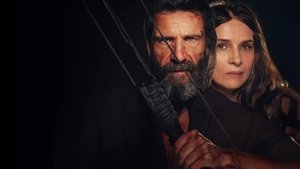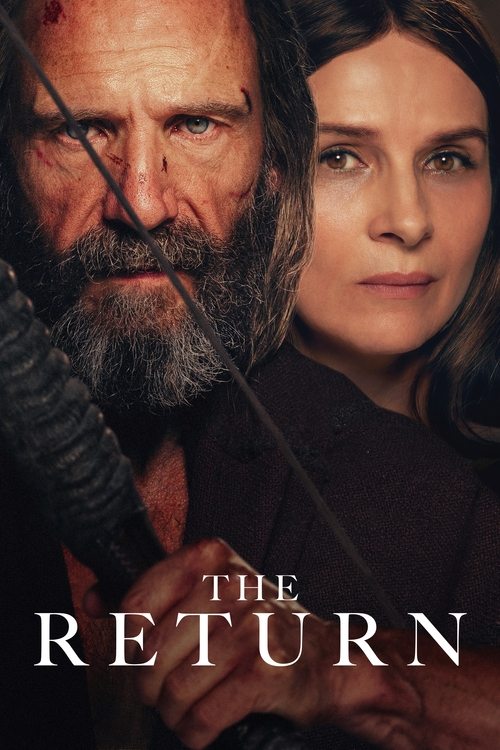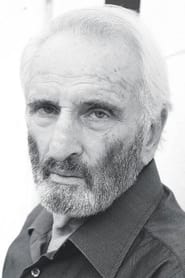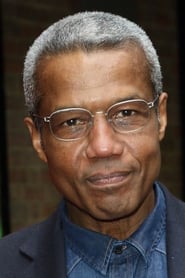Cast
View AllRalph Fiennes
as Odysseus (Ulisse)
Juliette Binoche
as Penelope
Charlie Plummer
as Telemachus (Telemaco)
Marwan Kenzari
as Antinous (Antinoo)
Claudio Santamaria
as Eumeas (Eumeo)
Ángela Molina
as Eurycleia (Euriclea)
Nikitas Tsakiroglou
as Laertes
Tom Rhys Harries
as Pisander (Pisandro)
Jamie Andrew Cutler
as Eurymachus (Eurimaco)
Moe Bar-El
as Elatus (Elato)
Amir Wilson
as Philetus (Filezio)
Jaz Hutchins
as Hippotas
Hugh Quarshie
as Imphinomous
Chris Corrigan
as Polybus
Aaron Cobham
as Leodes (Leode)
Crew
Director
- Uberto Pasolini
Writer
- John Collee
- Edward Bond
- Uberto Pasolini
Producer
- Uberto Pasolini
- James Clayton
- Roberto Sessa
- Vivien Aslanian
- Marco Pacchioni
- Stéphane Moatti
- Giorgos Karnavas
- Romain Le Grand
- Konstantinos Kontovrakis
Reviews
CinemaSerf
There something about this film that reminded me of “The Mission” (1986) as it simply depicts the rudimentary lives of the people on Ithaca many years after their King Odysseus (Ralph Fiennes) joined the forces of Agamemnon to fight the Trojan War. His wife, Queen Penelope (Juliette Binoche) has been struggling to raise their rather timid son Telemachus (Charlie Plummer) whilst being besieged by a slew of suitors who are convinced her husband is dead and want to marry their way onto the throne. When a man is washed up on the beach after a terrific storm, he is taken in by a friendly pig farmer who nurses him back to health and fills him in on the goings on in this now lawless and largely bankrupt kingdom. It’s pretty clear to us watching who he is, and the remainder of this drama illustrates the struggles of a man conflicted. Certainly, he wants to reclaim what once was his but he is also questioning whether or not he should, or even could, in the face of the scheming Antinous (Marwan Kenzari) who is fairly shamelessly using the safety of her son as leverage to be the one she chooses. Now if you are looking for a sword and sandals adventure, or anything you might have seen Ray Harryhausen animate, then this won’t be for you. It is a much more intense, personal, story of a man coming to terms with the ravages of time and war. There’s next to no sword play, no lions to fight or maidens luring him from to the rocks; indeed this whole story is entirely confined to the concluding phase of Homer’s epic that is solely based on the island. It’s also worth noting that Zeus, Apollo and their Olympian family do not feature at all in this history. It’s all told, bare bones, from the perspective of a character that Fiennes presents well enough, but for my money too theatrically. His less-is-more style coupled with a real paucity of dialogue and Uberto Pasolini’s borderline lethargic direction can make this an almost real-time and sluggish portrayal of an exhausted man, and exhausted population and an even more exhausted wife. On that last point, Binoche has precious little to say for herself throughout and though she looks the part, I didn’t think she was given enough to do to impose herself on the story until the very end, where the thing comes alive for a few moments - but again, in a very stage-bound fashion. The photography and locations do much to authenticate the story, as does the entire production design but given this project was thirty years from first page to first screening, too much objectivity had been lost to the labour of love that this clearly is for Fiennes and Pasolini and though it’s perfectly watchable, it’s just missing that something special.
Apr 10, 2025
Thematic Analysis
As a dramatic work, The Return examines complex human relationships and emotional struggles against the backdrop of contemporary challenges that mirror our own experiences. The character development particularly stands out, offering viewers a chance to reflect on their own life journeys.
Director Uberto Pasolini brings their distinctive visual style to this film, continuing their exploration of themes seen in their previous works while adding new elements. Their approach to character development and emotional depth creates a viewing experience that rewards close attention.
Released in 2024, the film exists within a cultural context that continues to evolve with our understanding of its themes. Its reception demonstrates the diverse reactions to its artistic choices and its place in cinema history.
Did You Know?
- The production of The Return took approximately 28 months from pre-production to final cut.
- With a budget of $20.0 million, the film represented a significant investment in bringing this story to the screen.
- The final cut of the film runs for 116 minutes, though the director's initial assembly was reportedly 143 minutes long.
- The musical score contains over 57 unique compositions.
- The screenplay went through 7 major revisions before the final shooting script was approved.
- The costume department created over 204 unique costume pieces for the production.
Historical Context
- In 2024, when this film is released:
- Streaming platforms had largely replaced traditional cinema and television models.
- Artificial intelligence was becoming increasingly integrated into daily life and creative industries.
- Streaming platforms were disrupting traditional distribution models and changing how audiences consumed films.
How This Film Stands Out
While The Return shares thematic elements with other films in its genre, it distinguishes itself through its unique approach to storytelling, visual style, and character development.
Unlike Convoy, which focuses more on action than character development, The Return subverts genre expectations by exploring its themes with greater nuance.
While films like The Illiac Passion and Romance for Bugle explore similar territory, The Return stands apart through its deeper exploration of its central themes and more complex characterization.
This film's unique contribution to cinema lies in its bold artistic choices and willingness to challenge viewer expectations, making it a valuable addition to its genre.
Details
- Release Date: September 7, 2024
- Runtime: 1h 56m
- Budget: $20,000,000
- Revenue: $2,106,733
Where to Watch

























